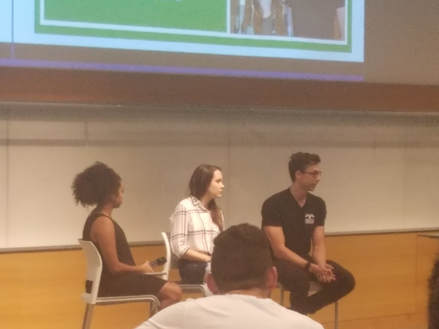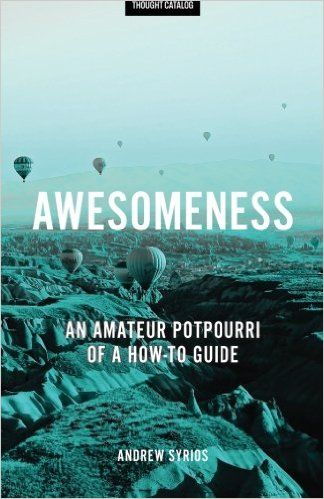|
I attended the UMKC’s First Wednesday’s panel discussion with Fountain City Finance Technology (or FinTech for short) Accelerator on October 3rd, 2018. The panelists included two members of Fountain City FinTech; Zach Pettet and Megan Darnell. According to their website, the accelerator is, “A vertically integrated partnership accelerator, providing fintech startups with a forward thinking bank partner, compliance expertise, and a solid infrastructure for scale.” (1) Megan and Zach described an accelerator as an institution that finds startups in their early stages and makes an investment for a percentage of the equity. The investment is usually around $30,000 to $50,000 for approximately five to seven percent of the equity. In addition, the accelerator provides advice and helps the entrepreneurs network and find capital sources.
Interestingly enough, a friend of mine from undergrad used a similar accelerator for her business that just happened to be in the marijuana industry; the subject of a previous post of mine. The company she opened is a marijuana delivery company named Stemless that began in Oregon (where I’m originally from) as soon as they legalized marijuana there. (2) Both Zach and Megan were obviously very passionate about entrepreneurship and what they do. Both of them had attended the Rainier Institute and Zach had won the Entrepreneur of the Year award. He had taken several jobs out of college including an internship at an investment bank that he found quite disheartening. He believed that, in many ways, they didn’t stand by their fiduciary duties to their clients very well at all. Megan had grown up in rural Missouri and attended Drury University, which she referred to as “the Harvard of the Midwest.” Weirdly enough, my father has consistently referred to his alma mater, Emporia State University, as “the Harvard of the Midwest.” Perhaps which university that title rightfully belongs to is still in dispute. Megan had previously started two entrepreneurial ventures, the first of which was a farm-to-table company that “failed miserably.” She then eventually moved to Mexico with her boyfriend before coming back to the United States to attend UMKC’s business school and finally she joined the Fountain City Fintech Accelerator. The accelerator focuses on financial startups that utilize technology and it is the first such accelerator in Kansas City. As Zach noted, normal banks can take six months or more to set up a partnership with a new firm. Fountain City Fintech’s first partnership took only five weeks to put together. Currently, they are partnered with six different startups, although to both of their disappointment, none of those companies were located in Kansas City. (One is in Australia, though.) They both believe that this new wave of finance companies can offer better, faster and more ethical financing solutions to the general public. Indeed, one example of finance done wrong that Zach gave was of Scott Tucker, who was the “Payday Loan King.” He lived in Kansas City and owned an enormous number of payday loan shops, which charge an effective interest rate of approximately 300-500 percent! And this is usually to poor people who can barely afford such loans. Tucker is currently in federal prison. They both also talked about their passion for entrepreneurship. As Zach noted, there is “nothing more intoxicating than helping entrepreneurs.” He also pointed out that without such passion, it’s highly unlikely you will have any success in entrepreneurship. As he put it, “You need to be a little bit crazy” and “work way too many hours a week.” If that doesn’t describe you, “it’s probably better to get a day job.” Megan stressed the skills that were required and how she developed them from her early failed entrepreneurial ventures. “You fall on your face so much as an entrepreneur,” as she put it. However, even from those experiences, she mentioned that “she learned a ton.” Which is something I’ve heard many entrepreneurs discuss regarding early failures. Indeed, we as a society are too afraid of failure. Failure might not be pleasant, but it is often the best teaching tool. Megan discussed how important time management and other such skills were. “It’s amazing,” she said, “how far just simple organizational tools will go.” She also pointed out the importance of being genuine. Both of them stressed how important it was to network and find mentors. Although Megan also tempered this recommendation by saying that “being involved” doesn’t just mean being in a bunch of clubs and doing a bunch of activities. It means really focusing on a few and being very active in those. And the ones you choose should relate to what you’re passionate about. Once you’ve found what you’re passionate about, research the job and find people in those fields. Then ask them for coffee and ask to “pick their brain” (Megan’s favorite line). Furthermore, it’s important to follow up even if you don’t hear back. As Zach pointed out, “They’re not just ignoring you, well they might be. But oftentimes they’re just busy.” They also noted that it’s important to be introspective and ask what’s really holding you back. To own those problems and be “vulnerable” enough to ask for help in those areas. After all, what good is a mentor if you’re not even going to ask for assistance in the areas you’re struggling in the most? This is an important point and makes sense coming from the perspective of two people who invest in and try to help grow young startups into successful firms. Passion, but also humility, are the keys to entrepreneurial success.
Comments
|
Andrew Syrios"Every day is a new life to the wise man." Archives
August 2018
Blog Roll
Bigger Pockets REI Club Tim Ferris Joe Rogan Adam Carolla MAREI Worcester Investments Entrepreneur The Righteous Mind Star Slate Codex Mises Institute Tom Woods Consulting by RPM Swift Economics Categories |

 RSS Feed
RSS Feed


